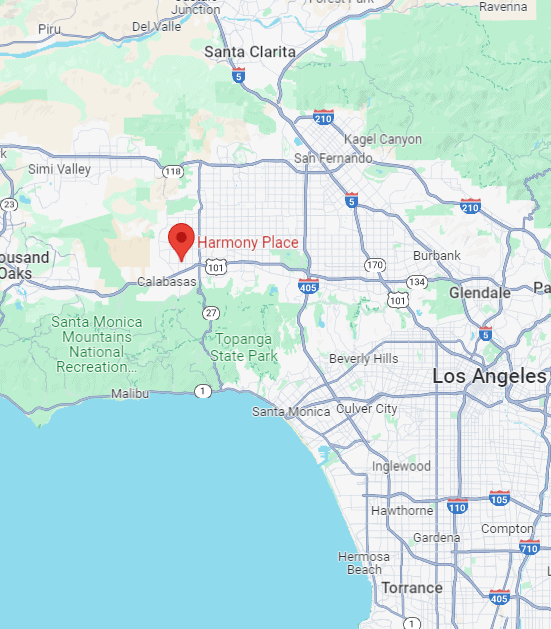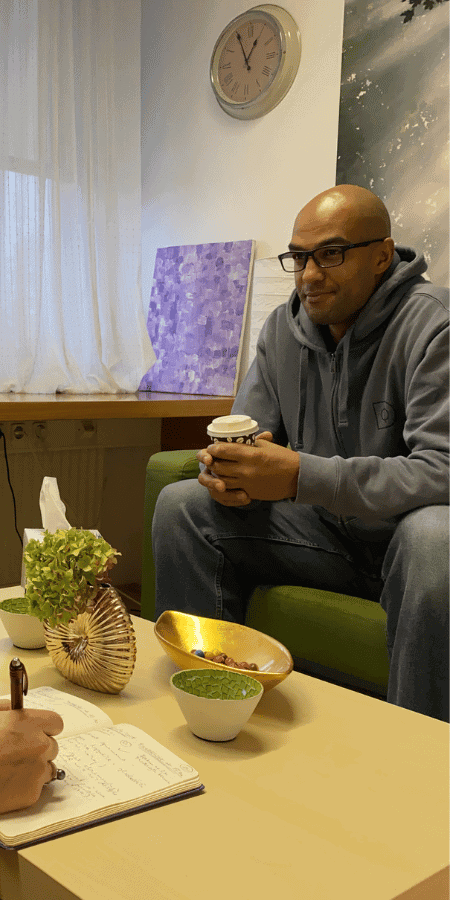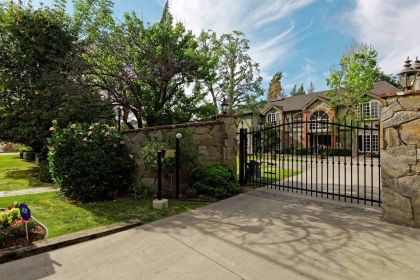Cost of Dual Diagnosis and Co-Occurring Treatment in Los Angeles, California
Harmony Place, a rehabilitation facility in Los Angeles, California, is committed to addressing the complexities of dual diagnosis and co-occurring disorders. Situated in the heart of LA, our facility provides a supportive environment for patients seeking recovery from substance abuse and mental health challenges.
Harmony Place Treatment Center combines recovery-oriented interventions, compassionate care, and a personalized approach to cater to the unique needs of those facing dual diagnosis and co-occurring disorders in the diverse and dynamic city of Los Angeles. Specializing in integrated rehabilitation programs and comprehensive recovery, Harmony Place Rehab Center recognizes the connection between substance use and mental health, and our tailored treatment programs aim to provide patients with the tools and support needed for holistic dual diagnosis treatment and lasting recovery.
With a team of experienced professionals and a holistic approach to treatment, Harmony Place is dedicated to helping individuals navigate the complexities of dual diagnosis in Los Angeles and the surrounding area to achieve sustainable well-being. To learn about dual diagnosis Los Angeles treatment programs offered at our facility, you can contact us online or call us.
Comprehensive Insight Into Dual Diagnosis Disorder (Co-Occurring Addiction & Mental Health)
The term “dual diagnosis disorder,” often used interchangeably with “co-occurring disorder,” refers to the simultaneous presence of both addiction and mental health issues within an individual. While the two terms are sometimes used interchangeably, it’s essential to note that “co-occurring disorder” is a broader term encompassing situations where an individual may be dealing with more than two co-existing conditions.
In the context of dual diagnosis disorder, the focus is specifically on the combination of addiction and mental health challenges. Individuals with Dual diagnosis disorder face a unique set of challenges as their recovery requires addressing both the substance-related issues and the underlying mental health conditions simultaneously. An integrated treatment approach recognizes the interconnected nature of addiction and mental health and acknowledges that one often influences the other.
Harmony Place Addiction Recovery Center, with its expertise in dual diagnosis treatment, offers comprehensive insight and affordable co-occurring disorder programs to address the intricate link between substance abuse and mental health. By understanding and addressing both aspects simultaneously through co-occurring disorders therapy, Harmony Place strives to provide patients with the tools and support they need to achieve lasting sobriety and recovery, as well as improved mental well-being. Searching for dual diagnosis treatment Los Angeles? Contact us online or call Harmony Place at (855) 652-9048.
Exploring the Cost of Dual Diagnosis Treatment Without Health Insurance
Without health insurance, dual diagnosis treatment cost is a significant financial burden for patients seeking care for substance use and mental health disorders. Co-occurring treatment costs can vary widely based on the specific programs, duration, and services required, making it crucial for individuals without insurance coverage to explore alternative financing options.
Many times, rehabilitation facilities, like Harmony Place Treatment Center, will offer sliding-scale fees or financial assistance programs to help ease the burden of mental health and substance use treatment costs. To learn more about the dual diagnosis care expenses at Harmony Place, you can learn more about the admissions process online or call us at (855) 652-9048.

Dual Diagnosis Treatment Center in Los Angeles, CA, That Offers Payment Plans
Harmony Place boasts a leading dual diagnosis treatment center in Los Angeles, California, conveniently situated at 23041 Hatteras St., Woodland Hills, CA 91367. Our commitment to providing comprehensive care for individuals facing substance use and mental health disorders extends to this state-of-the-art facility in the vibrant city of Los Angeles.
As part of our dedication to accessibility, Harmony Place offers payment plans to ease the financial aspect of seeking co-occurring disorder therapy. If you or a loved one needs compassionate and tailored care, we encourage you to contact us at (855) 652-9048 to explore the Los Angeles dual diagnosis treatment programs available at our Woodland Hills rehab and recovery location.
Harmony Place – Woodland Hills, CA
23041 Hatteras St.
Woodland Hills, CA 91367
Exploring Dual Diagnosis Rehabilitation Treatment Options in My Vicinity
When exploring dual-diagnosis rehabilitation treatment options in your vicinity, you embark on a journey to find comprehensive and tailored care for individuals grappling with both substance use and mental health disorders. The decision to localize your rehab search is pivotal, as it allows you to tap into facilities that possess a nuanced understanding of the unique challenges prevalent in your community.
This localized approach ensures that the treatment programs offered are evidence-based and culturally sensitive, fostering an environment conducive to healing. Whether you are considering outpatient services that allow for flexibility in your daily life or contemplating the immersive experience of residential programs, proximity to your location brings a range of advantages. Being geographically closer to the treatment center enhances accessibility, facilitating regular engagement with therapeutic interventions. Additionally, it allows for a whole-person approach, aligning your recovery journey with the dynamics of your local community. By exploring dual-diagnosis treatment options within your vicinity, you open doors to personalized, community-oriented programs designed to treat the complex link between substance use and mental health.
Harmony Place Treatment Center offers cost-effective dual diagnosis treatment in the Los Angeles and Southern California area. To learn more about dual diagnosis treatment centers in Los Angeles, CA, contact us online or call (855) 652-9048.
The Intersection of Alcohol Use Disorder (AUD) and Depression
Alcohol use disorder (AUD) and depression often intertwine, creating a complex landscape that demands nuanced treatment. Individuals facing this dual challenge experience a reciprocal relationship where alcohol misuse can exacerbate depressive symptoms and vice versa. Understanding this intricate interplay is crucial for designing effective therapeutic interventions.
Comprehensive behavioral health treatment strategies at Harmony Place consider both AUD and depression simultaneously, addressing the underlying factors to foster lasting recovery and sobriety. You can contact us online or call us at (855) 652-9048 to learn about treatment for dual diagnosis Los Angeles.
Navigating Bipolar Disorder Alongside Substance Use Disorder
Navigating the terrain of bipolar disorder in conjunction with substance use disorder requires specialized care that recognizes the unique challenges posed by this dual diagnosis. Patients with Bipolar Disorder may turn to substances to manage mood swings, intensifying the complexities of their condition.
Harmony Place’s integrated behavioral care approach acknowledges the interdependence of drug and alcohol addiction with bipolar disorder. As such, we offer treatment programs that address both aspects concurrently for a holistic and sustainable recovery. To learn more about the treatment options aimed at treating bipolar disorder and substance use disorder, you can contact Harmony Place Treatment Center online or call (855) 652-9048.
The Complex Relationship Between Anxiety and Substance Use Disorders
The complex connection between anxiety and substance use disorders forms a significant challenge for those seeking recovery. Anxiety can drive individuals to turn to substances as a coping mechanism, creating a cycle that exacerbates both conditions. Harmony Place addresses this intricate connection by offering specialized interventions that consider the interplay between alcohol and drug addiction and anxiety.
The dual condition interventions offered at Harmony Place Treatment Center aim to break the cycle and provide individuals with effective coping mechanisms for both disorders. To learn more about the treatment options aimed at treating anxiety and substance use disorder, you can reach out to Harmony Place Treatment Center online or call us at (855) 652-9048.
Unraveling the Connection Between PTSD and Substance Use Disorder
Co-occurring symptoms from post-traumatic stress disorder (PTSD) and substance use unveil a profound impact on an individual’s well-being. Individuals may turn to substances as a way to self-medicate and help alleviate the symptoms of PTSD, resulting in a challenging cycle of dependency.
Harmony Place unravels this intricate connection by providing comprehensive care that recognizes and addresses both the trauma of PTSD and the complexities of substance use, promoting a path toward healing and recovery. For more information on behavioral therapy expenses for dual diagnosis treatment of PTSD and SUD, contact us online or call (855) 652-9048.
Exploring the Link Between BPD and Substance Misuse
Exploring the link between borderline personality disorder (BPD) and substance misuse unveils a complex interplay that demands specialized attention. Individuals with BPD may turn to substances as a means of self-soothing or managing intense emotions, creating a challenging landscape for recovery.
Harmony Place Treatment Center delves into this nuanced relationship and offers tailored programs that address both the unique aspects of borderline personality disorder and the complexities of drug and alcohol addiction concurrently for a more comprehensive approach to healing. To learn about our dual-diagnosis treatment for borderline personality disorder and substance use disorder, contact us online or call (855) 652-9048.
Understanding the Dynamics of ADHD and Substance Use Disorder
Understanding the dynamics between attention-deficit/hyperactivity disorder (ADHD) and substance use disorder is crucial for providing effective treatment. Patients with ADHD may be more likely to develop substance abuse issues as they seek to manage symptoms or cope with the challenges associated with their condition.
Harmony Place acknowledges this interplay, offering specialized care that addresses both ADHD and substance use, empowering individuals to navigate their recovery with tailored support.
Interplay Between Eating Disorders and Substance Misuse
The interplay between eating disorders and substance misuse introduces unique challenges to the recovery journey. Harmony Place recognizes the intricacies of this relationship, offering specialized programs that address both aspects concurrently. By understanding the interdependence of drug and alcohol addiction with eating disorders, Harmony Place provides comprehensive care to support individuals in achieving lasting recovery and improved overall well-being. If you are searching for rehabs with co-occurring mental health disorders in LA, contact us today at (855) 652-9048.
The Intersection of Personality Disorders and Substance Misuse
The intersection of personality disorders and substance misuse presents a complex scenario that requires specialized care. Individuals with personality disorders may turn to substances as a coping mechanism, intensifying the challenges of both conditions. These challenges require specialized mental health and addiction services for full recovery.
Harmony Place adopts a comprehensive approach, addressing the unique aspects of personality disorders and the complexities of drug and alcohol addiction simultaneously for a more holistic path to recovery. To learn more about the treatment options aimed at treating a personality disorder and substance abuse simultaneously, you can reach out to Harmony Place Treatment Center online or call (855) 652-9048.

Assessing the Impact and Value of Co-Occurring or Dual Diagnosis Treatment
Assessing the impact and value of co-occurring or dual diagnosis treatment reveals a cost-effective and holistic approach to treating co-occurring mental health and substance use disorders. Opting for a Los Angeles dual-diagnosis treatment center often proves to be more economical than pursuing multiple treatments individually.
Bundling mental health and addiction services not only streamlines the treatment process but also tends to be more affordable, as co-occurring disorder rehabilitation costs are combined. Beyond the financial considerations, the health benefits of dual diagnosis treatment are substantial. Integrated programs provide individuals with a comprehensive understanding of the link between their mental health and substance use, fostering a more effective recovery process. The simultaneous focus on both aspects enhances treatment outcomes, promoting lasting recovery by addressing the root causes of the co-occurring conditions.
Additionally, investing in dual diagnosis treatment can contribute to long-term cost savings. Addressing mental health and addiction concurrently helps prevent relapses and re-hospitalizations, reducing the overall burden on the healthcare system and presenting a valuable investment in both individual well-being and broader societal health.
Ready to take the first step towards recovery? Contact us today at (855) 652-9048, one of our team members will help answer any questions regarding dual diagnosis rehab Los Angeles.
Exploring Health Insurance Coverage for Dual-Diagnosis Therapy and Treatment – Does Insurance Cover Treatment?
Yes, health insurance typically covers dual-diagnosis therapy and treatment, providing individuals with a crucial avenue for accessing comprehensive care addressing both mental health and substance use disorders. Many insurance plans recognize the importance of integrated treatment for co-occurring conditions and include coverage for dual-diagnosis services.
Insurance coverage for co-occurring mental health and substance use disorders often encompasses various aspects of treatment, including therapy sessions, medication management, and other essential interventions tailored to address the patient’s mental health and substance use challenges.
Understanding the specifics of your health insurance plan coverage for dual-diagnosis therapy is essential. While insurance does cover these treatments, the extent of coverage can vary based on the individual’s insurance plan. You should contact your insurance provider or contact us at Harmony Place, where our experienced rehab team can help you navigate the details of your dual-diagnosis insurance reimbursement coverage, ensuring that you maximize the benefits available to you for treatment for dual-diagnosis Los Angeles.

Financial Considerations for Co-Occurring Disorder Rehabilitation Without Health Insurance – Can You Afford Treatment Without It?
Navigating co-occurring disorder rehabilitation without insurance raises financial concerns, but it’s important to know that treatment is available, and affordability is a priority. At Harmony Place, we understand the challenges individuals face in seeking care for both mental health and substance use disorders. We offer payment options and financial assistance programs to make rehabilitation accessible to those without health insurance.
At Harmony Place Treatment Center, our commitment to providing integrated mental health and addiction care includes working closely with individuals to explore viable solutions that align with their financial capabilities. If you don’t have health insurance, we can discuss your dual diagnosis out-of-pocket costs, as well as medication costs for co-occurring disorders, to help you find realistic financial solutions.
If you are considering co-occurring disorder rehabilitation without health insurance, we encourage you to contact us discuss payment options and dual diagnosis rehab financial considerations. At Harmony Place, we prioritize your well-being and are here to assist you in finding a financial arrangement that allows you to access the treatment you need. By calling us, you can start a conversation about your specific situation, and together, we can explore payment plans and financial assistance programs tailored to your circumstances. Your journey to recovery is essential, and we are here to help you overcome any financial barriers to accessing the care you deserve. Call us at (855) 652-9048 to learn more today.
The impact of dual diagnosis disorder, which affects approximately 7.7 million adults dealing with simultaneous mental and substance use disorders, underscores the complexity of these interconnected challenges. In this intricate relationship, 37.9% of the 20.3 million adults with substance use disorders also grapple with mental illnesses, while 18.2% of the 42.1 million adults facing mental illnesses contend with substance use disorders, according to an NIH report.
Despite the necessity for a comprehensive treatment approach addressing both mental and substance use disorders concurrently, a significant 52.5% of individuals with co-occurring conditions do not receive mental health care or substance use treatment. Barriers persist, including financial constraints (52.2%), uncertainty about where to seek treatment (23.8%), and the belief that the issue could be managed without professional help (23.0%). These findings from the NIH emphasize the urgent need to address systemic barriers and improve accessibility to care for individuals with co-occurring disorders.
Comorbidity, defined as the co-occurrence of two or more disorders either simultaneously or sequentially, is a common occurrence, particularly in the context of substance use and mental disorders. The term also highlights that the interactions between these disorders can exacerbate the course of both conditions.
The impact of comorbidity or co-occurring disorders is significant, affecting approximately 7.7 million adults who simultaneously struggle with mental and substance use disorders, according to an NIH report. The relationship between these conditions is complex, with 37.9% of the 20.3 million adults with substance use disorders also experiencing mental illnesses. Conversely, among the 42.1 million adults with mental illnesses, 18.2% also face the challenges of substance use disorders.
Addressing co-occurring disorders requires a comprehensive treatment approach that simultaneously tackles both mental and substance use disorders. However, not everyone with co-occurring conditions receives the necessary treatment. A concerning 52.5% of individuals with these conditions do not receive mental health care nor substance use treatment, emphasizing the existing gaps in accessing appropriate care. Barriers to receiving treatment exist even for those who actively seek help. Among adults with co-occurring disorders not receiving mental health care, reasons include:
- financial constraints (52.2%)
- uncertainty about where to seek treatment (23.8%)
- the belief that the issue could be managed without professional help (23.0%)
- not ready to stop using (38.4%)
- lack of health insurance (35.1%)
- concerns about negative opinions from neighbors (13.1%)
These NIH findings underscore the complexity of accessing treatment for individuals with co-occurring disorders and highlight the need for addressing systemic barriers to improve care accessibility.
According to a recent California report, the annual enrollment for residential (non-hospital) drug rehab services reaches 12,752 individuals, constituting 13.92% or $722.4 million of the total investment in residential treatment from the U.S. public within the state. The average estimated cost for an individual undergoing residential rehab in California is approximately $56,654. Additionally, 674 patients receive drug rehab services within California’s hospitals, reflecting the diverse array of treatment options available in the state.
- Aetna Addiction Treatment Coverage
- Amerihealth Addiction Treatment Coverage
- Anthem (Elevance Health) Addiction Treatment Coverage
- Beacon Addiction Treatment Coverage
- Blue Cross Blue Shield Addiction Treatment Coverage
- Carelon Addiction Treatment Coverage
- Cigna Addiction Treatment Coverage
- Compsych Addiction Treatment Coverage
- First Health Addiction Treatment Coverage
- Humana Addiction Treatment Coverage
- Kaiser Permanente Addiction Treatment Coverage
- Magellan Health Addiction Treatment Coverage
- Medical Mutual Addiction Treatment Coverage
- Molina Health Addiction Treatment Coverage
- Multiplan Addiction Treatment Coverage
- Optum Addiction Treatment Coverage
- TRICare Addiction Treatment Coverage
- United Healthcare Addiction Treatment Coverage
- Cost of Treatment
- Cost of Dual Diagnosis Treatment
- Cost of Addiction Treatment
- Cost of Drug and Alcohol Detox Programs
- Cost of Drug and Alcohol Residential Inpatient Programs
- Cost of Drug and Alcohol Partial Hospitalization Programs
- Cost of Drug and Alcohol Intensive Outpatient Programs
- Cost of Drug and Alcohol Outpatient Programs
- Cost of Drug and Alcohol Aftercare Programs
- Cost of Sober Living
- Cost of Addiction Therapy Programs












